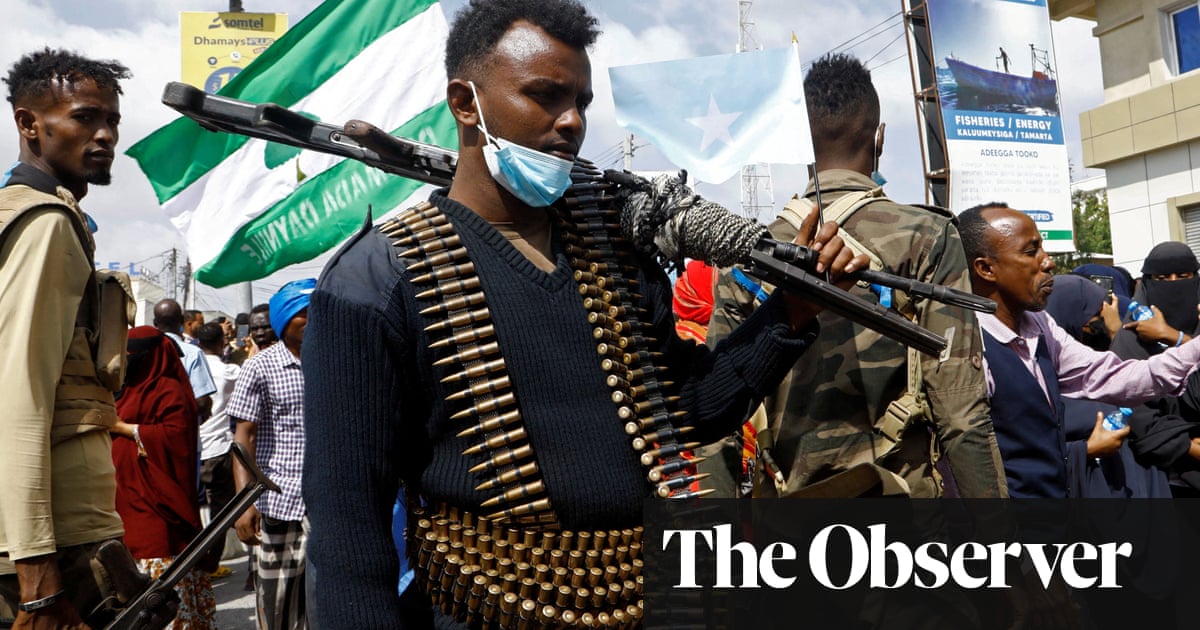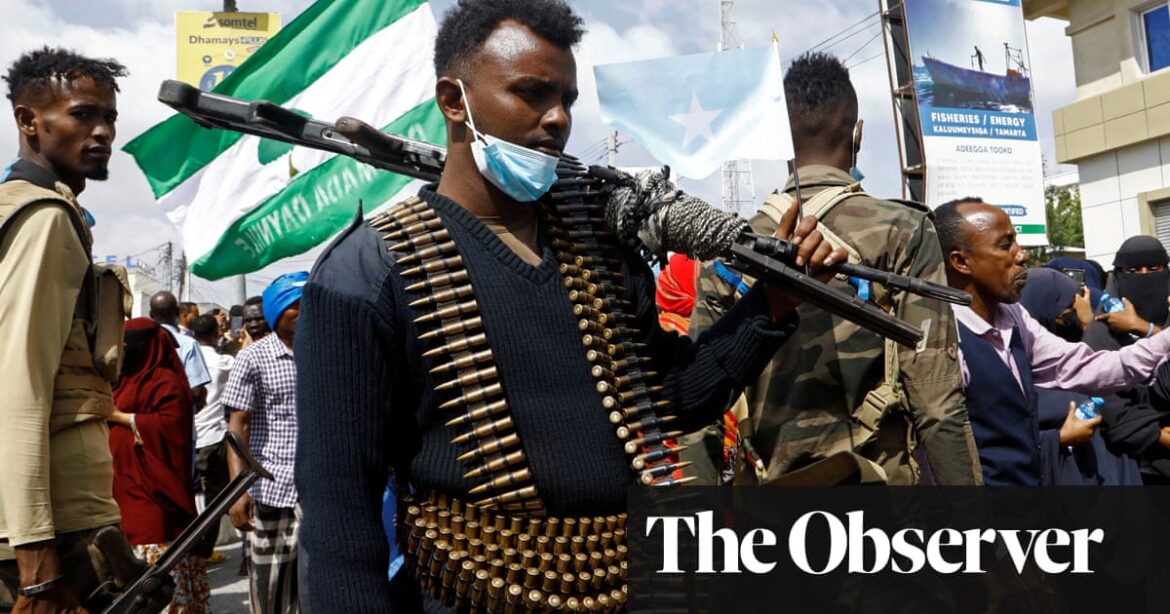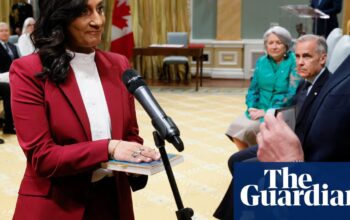
An advisor to the president of Somalia stated that Somalia is willing to engage in armed conflict in order to prevent Ethiopia from recognizing Somaliland as an independent region and constructing a port there.
A written agreement was made on January 1st, granting Ethiopia, a country without access to the ocean, permission to build a naval base on the coast of Somaliland. This has caused concern in the Horn of Africa, known as one of the most unstable regions in the world.
Somalia asserts that Somaliland is a part of its land and has deemed the agreement invalid. On Sunday, President Hassan Sheikh Mohamud urged Somalis to “ready themselves for protecting our nation”, and protests have taken place in Mogadishu, the capital of Somalia, opposing the deal.
The adviser stated that they are exploring all possible diplomatic solutions and believe that Ethiopia will act with reason. However, they are prepared for conflict if Abiy chooses to engage in war.
In 1977-78, Ethiopia and Somalia engaged in a dispute over a particular region, resulting in a conflict that has left underlying tensions to this day. In 2006, Ethiopia intervened in Somalia to remove Islamic forces from Mogadishu, which ultimately led to the emergence of the Al-Shabaab insurgency. Currently, Ethiopia plays a significant role in the African Union’s peacekeeping efforts in Somalia by providing a large number of troops.
The advisor stated that the port agreement was unexpected for Somalia. He alleged that Abiy had previously denied any plans to pursue access to the sea through Somaliland during a summit in Saudi Arabia in November when questioned by Mohamud.
In 1960, Somaliland gained independence from British colonization. Shortly after, it joined with Somalia, which was formerly an Italian colony. However, this union was unstable and Somaliland ultimately separated from Somalia in 1991 after a ten-year struggle against a Soviet-backed military government. Presently, Somaliland operates as a self-governing state with its own currency, parliament, and international diplomatic missions.
For the past 20 years, Somalia has been plagued by Al-Shabaab, a strong ally of Al-Qaida, causing it to be considered one of the most hazardous countries in the world. On the other hand, Somaliland is comparatively calm, although recent conflicts on its eastern border with Somalia have slightly damaged its reputation for stability.
Although many countries do not acknowledge it, the African Union stands by its policy of not changing national borders established by colonial powers. As a result, Western governments also refuse to recognize it until the African nations do.
Without recognition, Somaliland struggles to attract investment and is cut off from international finance, which is mostly channelled through Mogadishu. In an interview with the Observer, Somaliland’s foreign minister, Essa Kayd, said the port deal with Ethiopia will “legitimise our self-determination” and could spark a “domino effect” of other countries recognising the territory.
Kayd stated that recognition is the ultimate goal for which they have been striving and it is the most valuable contribution they can provide to the citizens of Somaliland.
There is uncertainty surrounding the specifics of the agreement reached between Somaliland and Ethiopia. Both parties have not released the complete text to the public.
After the incident, President Muse Bihi Abdi of Somaliland stated that Ethiopia had promised to recognize their country in exchange for a 50-year lease of a section of the coastline. This area will be used for both naval and commercial activities. However, Ethiopia clarified that they had only agreed to thoroughly evaluate the situation before making a decision on whether to recognize Somaliland.
According to a Western diplomat familiar with the agreement, it is being referred to as a “memorandum of misunderstanding.” The diplomat stated, “Ethiopia maintains they did not make a commitment to recognize Somaliland.”
Kayd mentioned that the agreement relies on Ethiopia officially acknowledging Somaliland. He noted that this is necessary for any progress to be made. Kayd also revealed that talks have been ongoing for several years. He explained, “Ethiopia requires access to the sea and we require recognition, so it’s clear how these needs can be addressed.”
In 1993, Eritrea’s secession resulted in Ethiopia becoming the largest landlocked country in the world, losing access to its Red Sea coastline. The Prime Minister, Abiy, recently expressed concern that this decision was a significant error, posing a threat to Ethiopia’s survival. This has raised concerns of potential conflict with Eritrea. Abiy stated, “By 2030, our population is estimated to reach 150 million. It is not feasible for such a large number of people to live within the confines of a geographic prison.”
Abiy’s advisor drew comparisons between Ethiopia’s desire for maritime access and the development of the Grand Ethiopian Renaissance Dam. This dam, located on the Blue Nile, has the potential to greatly impact the country through its hydroelectric capabilities. Despite Egypt’s protests and threats of force, the dam was successfully constructed.
According to Alan Boswell, the Horn of Africa director at the International Crisis Group, it is unlikely that Somalia will initiate an attack on Ethiopia while it is dealing with Al-Shabaab. However, this agreement has the potential to create new divisions in an already unstable area.
Last week, Mohamud traveled to Eritrea and is now getting ready to go to Egypt. Both countries are seen as rivals by Ethiopia and have shown their support for Somalia after the port agreement. According to Boswell, Abiy views this as an important matter for his legacy. If the deal with Somaliland does not work out, Ethiopia will likely seek another port, so this decision will greatly impact regional relationships in the future.
Source: theguardian.com



